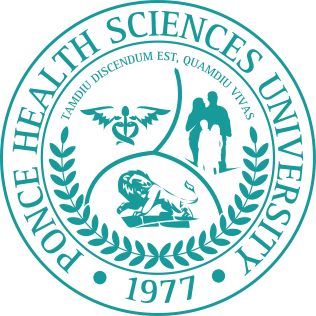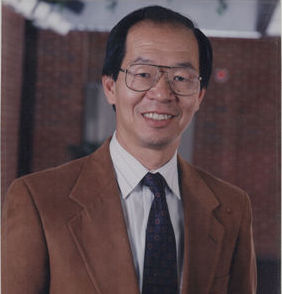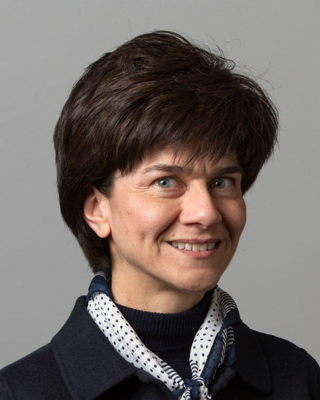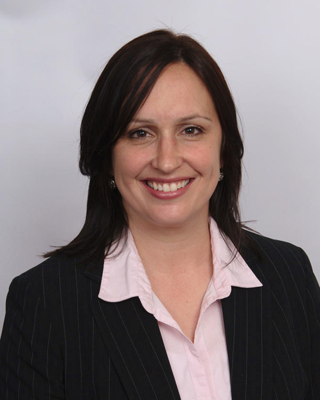The University of Texas Southwestern Medical Center is a public academic health science center in Dallas, Texas. With approximately 23,000 employees, more than 3,000 full-time faculty, and nearly 4 million outpatient visits per year, UT Southwestern is the largest medical school in the University of Texas System and the State of Texas.

The Ponce Health Sciences University (PHSU), formerly Ponce School of Medicine & Health Sciences, is a private, for-profit university in Ponce, Puerto Rico and St. Louis, Missouri. It awards graduate degrees in Medicine (MD), Clinical Psychology (PsyD and PhD), Biomedical Sciences (PhD), Medical Sciences (MS), and Public Health (MPH and DrPH). The university has 360 students in its medical school and, as of 11 February 2019, was authorized to increase the student body at the medical school to 600 which, when fully in place, will make it the largest private medical school in Puerto Rico and one of the largest under the American flag.

Frederick Pei Li was a Chinese-American physician. He is most famous for his discovery, together with his colleague Joseph Fraumeni, of Li–Fraumeni syndrome, which is caused by germline mutations of the p53 tumor suppressor gene and genetically predisposes families to high rates of cancer.
Waldenström macroglobulinemia is a type of cancer affecting two types of B cells: lymphoplasmacytoid cells and plasma cells. Both cell types are white blood cells. It is characterized by having high levels of a circulating antibody, immunoglobulin M (IgM), which is made and secreted by the cells involved in the disease. Waldenström macroglobulinemia is an "indolent lymphoma" and a type of lymphoproliferative disease which shares clinical characteristics with the indolent non-Hodgkin lymphomas. It is commonly classified as a form of plasma cell dyscrasia, similar to other plasma cell dyscrasias that, for example, lead to multiple myeloma. Waldenström macroglobulinemia is commonly preceded by two clinically asymptomatic but progressively more pre-malignant phases, IgM monoclonal gammopathy of undetermined significance and smoldering Waldenström macroglobulinemia. The Waldenström macroglobulinemia spectrum of dysplasias differs from other spectrums of plasma cell dyscrasias in that it involves not only aberrant plasma cells but also aberrant lymphoplasmacytoid cells and that it involves IgM while other plasma dyscrasias involve other antibody isoforms.

Joseph F. Fraumeni Jr. is an American physician and cancer researcher. Born in Boston, he received an A.B. from Harvard College, an M.D. from Duke University, and an M.Sc. in epidemiology from the Harvard School of Public Health. He completed his medical residency at Johns Hopkins Hospital and Memorial Sloan Kettering Cancer Center. He then joined the National Cancer Institute at the National Institutes of Health in 1962 as a commissioned officer of the U.S. Public Health Service, becoming the founding Director of the Division of Cancer Epidemiology and Genetics in 1995. He stepped down from this position in 2012 to become a senior investigator and advisor to the National Cancer Institute.

Edison T. Liu is an American chemist who is the former president and CEO of The Jackson Laboratory, and the former director of its NCI-designated Cancer Center (2012-2021). Before joining The Jackson Laboratory, he was the founding executive director of the Genome Institute of Singapore (GIS), chairman of the board of the Health Sciences Authority, and president of the Human Genome Organization (HUGO) (2007-2013). As the executive director of the GIS, he brought the institution to international prominence as one of the most productive genomics institutions in the world.

The UPMC Hillman Cancer Center, previously the University of Pittsburgh Cancer Institute (UPCI), is a National Cancer Institute (NCI)-designated Comprehensive Cancer Center located in the Hillman Cancer Center in the Shadyside neighborhood of Pittsburgh, adjacent to UPMC Shadyside. The only NCI-designated cancer center in Western Pennsylvania, Hillman is composed of collaborative academic and research efforts between the University of Pittsburgh, the University of Pittsburgh Medical Center (UPMC), and Carnegie Mellon University. Hillman provides clinical cancer care to some 74,000 patients treated at its facilities at both the Hillman Cancer Center location in the Shadyside neighborhood of Pittsburgh and at UPMC-affiliated sites throughout Pennsylvania, New York, Ohio, and overseas locations. Founded in 1984, Hillman became the youngest cancer center in history to achieve NCI-designation. As of 2007, Hillman had received nearly $200 million in funding from the National Cancer Institute, which ranks it as one of the top ten cancer research institutes.
Sir Bruce Anthony John Ponder FMedSci FAACR FRS FRCP is an English geneticist and cancer researcher. He is Emeritus Professor of Oncology at the University of Cambridge and former director of the Cancer Research UK Cambridge Institute and of the Cancer Research UK Cambridge Cancer Centre.
Henry Thompson Lynch was an American physician noted for his discovery of familial susceptibility to certain kinds of cancer and his research into genetic links to cancer.

Xiaohong Rose Yang is an American biomedical scientist researching the genetics of dysplastic nevus syndrome and chordoma, and etiologic heterogeneity of breast cancer. She is a senior investigator at the National Cancer Institute. Yang leads breast cancer studies in mainland China, Hong Kong, and Malaysia.
Robert A. Kyle is a professor of medicine, Laboratory Medicine and Pathology at the Mayo Clinic. He specializes in the care of patients with plasma cell dyscrasias. Throughout his career Kyle has published more than 1,850 scientific papers and abstracts on myeloma and other plasma cell disorders... Some of Dr. Kyle's most notable scientific contributions include naming the disorder known as Monoclonal gammopathy of undetermined significance (MGUS) as well as establishing the epidemiology and long-term prognosis of MGUS.

Sharon A. Savage is an American pediatric hematologist/oncologist. She is the clinical director of the National Cancer Institute's Division of Cancer Epidemiology and Genetics.

Amanda Black is a Northern Irish epidemiologist who is the associate director of biological resources in the National Cancer Institute's division of cancer epidemiology and genetics.

Maria Teresa Landi is an Italian epidemiologist and oncologist who researches genetic and environmental determinants of lung cancer and melanoma. At the National Cancer Institute, she is a senior investigator in the integrative tumor epidemiology branch and a senior advisor for genomic epidemiology. Landi is an associate professor of epidemiology at the Johns Hopkins Bloomberg School of Public Health.

Margaret Anne Tucker is an American oncologist and physician-scientist specialized in environmental and genetic epidemiology, familial cancers, and melanomas. She is a scientist emeritia at the National Cancer Institute (NCI). Tucker was a commissioned officer in the United States Public Health Service Commissioned Corps and served as director of the NCI human genetics program from 2005 until her retirement in June 2018.

Shahinaz Mohamed Aly Gadalla is a physician-scientist and cancer epidemiologist who researches cancer biomarkers and hematopoietic stem cell transplantation. She is a senior investigator in the clinical genetics branch at the National Cancer Institute.

Julia C. Gage is an American cancer epidemiologist who researches cervical screening and the human papillomavirus infection. She is a staff scientist in the clinical genetics branch at the National Cancer Institute.

Neelam K. Giri is an Indian pediatric hematologist/oncologist and physician-scientist who researches bone marrow failure syndromes. She is a staff clinician in the clinical genetics branch at the National Cancer Institute.
Katherine Ann McGlynn is an American cancer epidemiologist who researches testicular dysgenesis syndrome and hepatocellular carcinoma. She is a senior investigator in the metabolic epidemiology branch of the National Cancer Institute. She was previously a faculty member at the Fox Chase Cancer Center.
Kathy J. Helzlsouer is an American oncologist, internist, and cancer epidemiologist who investigates cancer etiology and prevention, women's health, genetic counseling, and translational research. At the National Cancer Institute, she is the associate director of the epidemiology and genomics research program and chief medical officer for the division of cancer control and population sciences.













